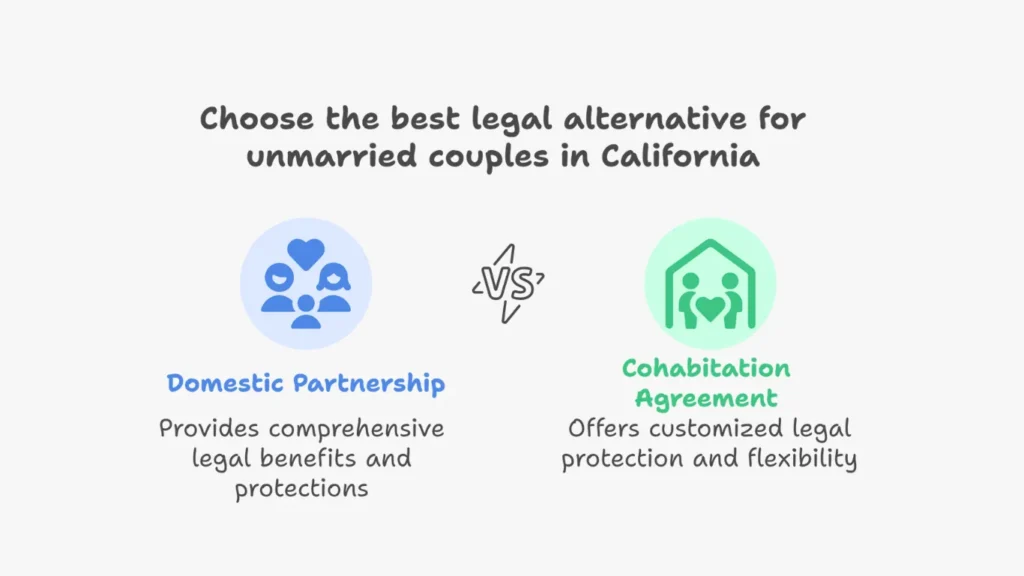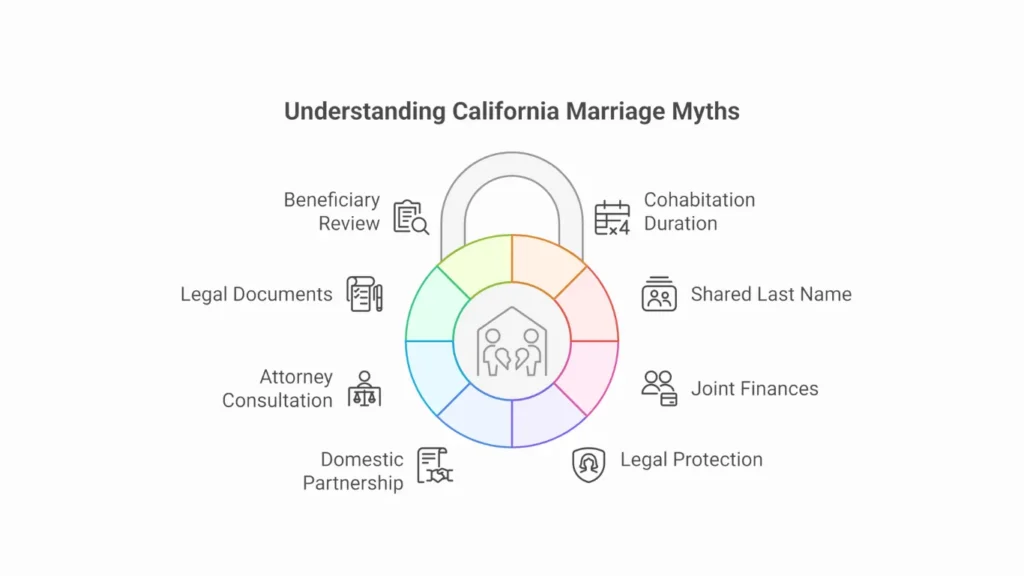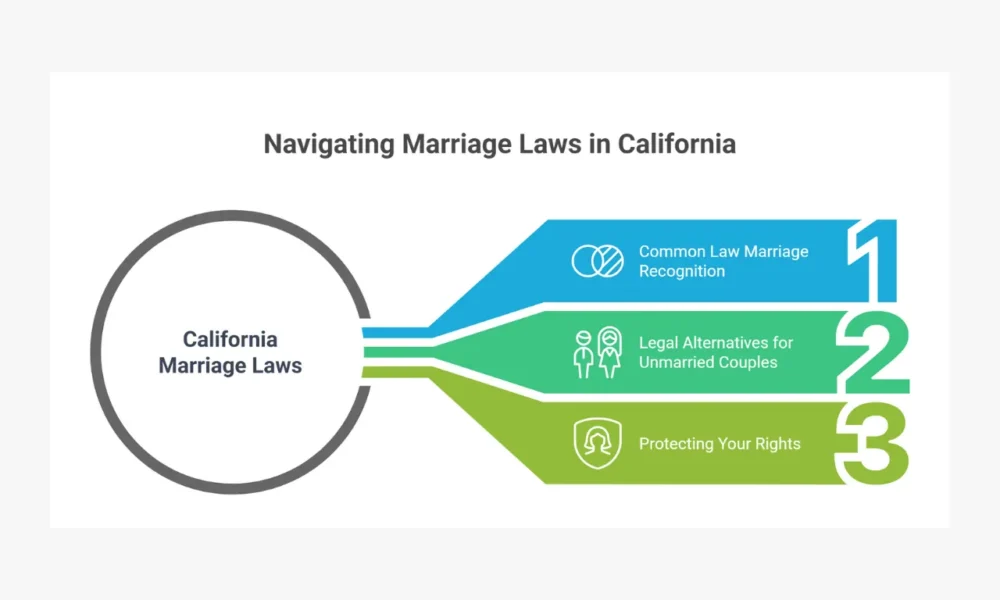Does California Recognize Common Law Marriage? Everything You Need to Know
Many couples living together in California wonder about their legal status and whether their relationship qualifies as a common law marriage. After helping numerous couples navigate these waters at Personalized Blog, I’ve seen firsthand how confusing this topic can be for many Americans.
What is Common Law Marriage?
Common law marriage is a legal concept where couples can be considered married without obtaining a marriage license or having a formal ceremony. In states that recognize it, couples must live together for a certain period and present themselves as married to the community.
However, the reality for California residents is quite different from what many people expect.
Does California Recognize Common Law Marriage?
No, California does not recognize common law marriage. This has been the law since 1895 when California officially abolished common law marriage recognition.
Even if you’ve lived with your partner for decades and consider yourselves married, California law doesn’t automatically grant you the same legal rights as formally married couples.
Historical Context
California eliminated common law marriage recognition over 125 years ago. The only exception applies to couples who established a valid common law marriage in another state before moving to California. In such cases, California will recognize that existing marriage under the Full Faith and Credit Clause.
Legal Rights of Unmarried Couples in California
Living together without formal marriage means you miss out on several important legal protections:
- Property rights during relationship dissolution
- Inheritance rights if your partner dies without a will
- Medical decision-making authority during emergencies
- Social Security benefits and spousal support
- Tax advantages available to married couples
- Hospital visitation rights in critical situations
During my years of research for Personalized Blog, I’ve encountered many couples who assumed their long-term relationship provided automatic legal protection. Unfortunately, this assumption often leads to significant problems when relationships end or medical emergencies arise.
Legal Alternatives for Unmarried Couples in California
Domestic Partnership Registration

California offers registered domestic partnerships as the primary alternative to marriage. This option provides many of the same legal benefits as marriage, including:
- Community property rights
- Medical decision-making authority
- Inheritance rights without a will
- Family leave benefits for partners
- Health insurance coverage eligibility
To register, both partners must:
- Be at least 18 years old
- Live together in California
- Not be married to anyone else
- Complete the Declaration of Domestic Partnership form
- Pay the required filing fee
Cohabitation Agreements
Cohabitation agreements (also called living together agreements) are contracts that outline how couples will handle:
- Property division if the relationship ends
- Financial responsibilities during the relationship
- Debt allocation and payment obligations
- Pet custody arrangements
- Business interests and investments
These agreements provide legal protection that unmarried couples otherwise lack in California.
Putative Spouse Doctrine in California
California recognizes the “putative spouse doctrine” in specific situations. This applies when someone genuinely believes they’re in a valid marriage, even if the marriage is technically invalid due to legal technicalities.
For example, if you went through a marriage ceremony but later discovered your partner was still legally married to someone else, you might qualify as a putative spouse and receive some marital rights.
Palimony and Unmarried Couples
Palimony refers to financial support one partner may owe another after a long-term relationship ends. Unlike alimony in divorce cases, palimony isn’t automatic in California.
To successfully claim palimony, you typically need:
- A written or clearly implied agreement about financial support
- Evidence of financial dependence during the relationship
- Proof of contributions to the relationship (financial or otherwise)
- Documentation of shared assets and expenses
Protecting Your Rights as an Unmarried Couple
Essential Legal Documents
Every unmarried couple in California should consider these legal documents:
- Healthcare directives and medical power of attorney
- Financial power of attorney for money management
- Wills and estate planning documents
- Property agreements for shared assets
- Life insurance beneficiary designations
Real Estate Considerations
When buying property together, unmarried couples should decide between joint tenancy and tenancy in common. Each option affects ownership rights and inheritance differently.
Joint tenancy provides survivorship rights, meaning the surviving partner automatically inherits the deceased partner’s share. Tenancy in common allows each person to leave their portion to anyone they choose.
Common Misconceptions About California Common Law Marriage

Myth 1: Living Together for Seven Years Creates Marriage
False. No amount of cohabitation automatically creates a legal marriage in California.
Myth 2: Using the Same Last Name Proves Marriage
False. Name changes don’t establish marital status under California law.
Myth 3: Joint Bank Accounts Equal Marriage
False. Shared finances don’t create legal marriage recognition.
Steps to Take Today
If you’re in an unmarried relationship in California, consider these immediate actions:
- Evaluate your need for legal protection
- Discuss domestic partnership registration with your partner
- Consult with a family law attorney about your specific situation
- Draft essential legal documents like wills and healthcare directives
- Review beneficiary designations on accounts and insurance policies
Why This Matters for Your Future
Understanding California’s position on common law marriage helps you make informed decisions about your relationship’s legal structure. Whether you choose domestic partnership, create cohabitation agreements, or pursue formal marriage, taking action protects both partners’ interests.
At Personalized Blog, we’ve seen too many couples face unnecessary hardship because they didn’t understand their legal status. Don’t let assumptions about common law marriage leave you vulnerable.
The absence of Common Law Marriage recognition in California doesn’t mean unmarried couples lack options. With proper planning and the right legal documents, you can create many of the protections that marriage provides while maintaining the relationship structure that works best for you.
Remember, every couple’s situation is unique. Consider consulting with a qualified attorney who can provide personalized advice based on your specific circumstances and goals.








No Comment! Be the first one.